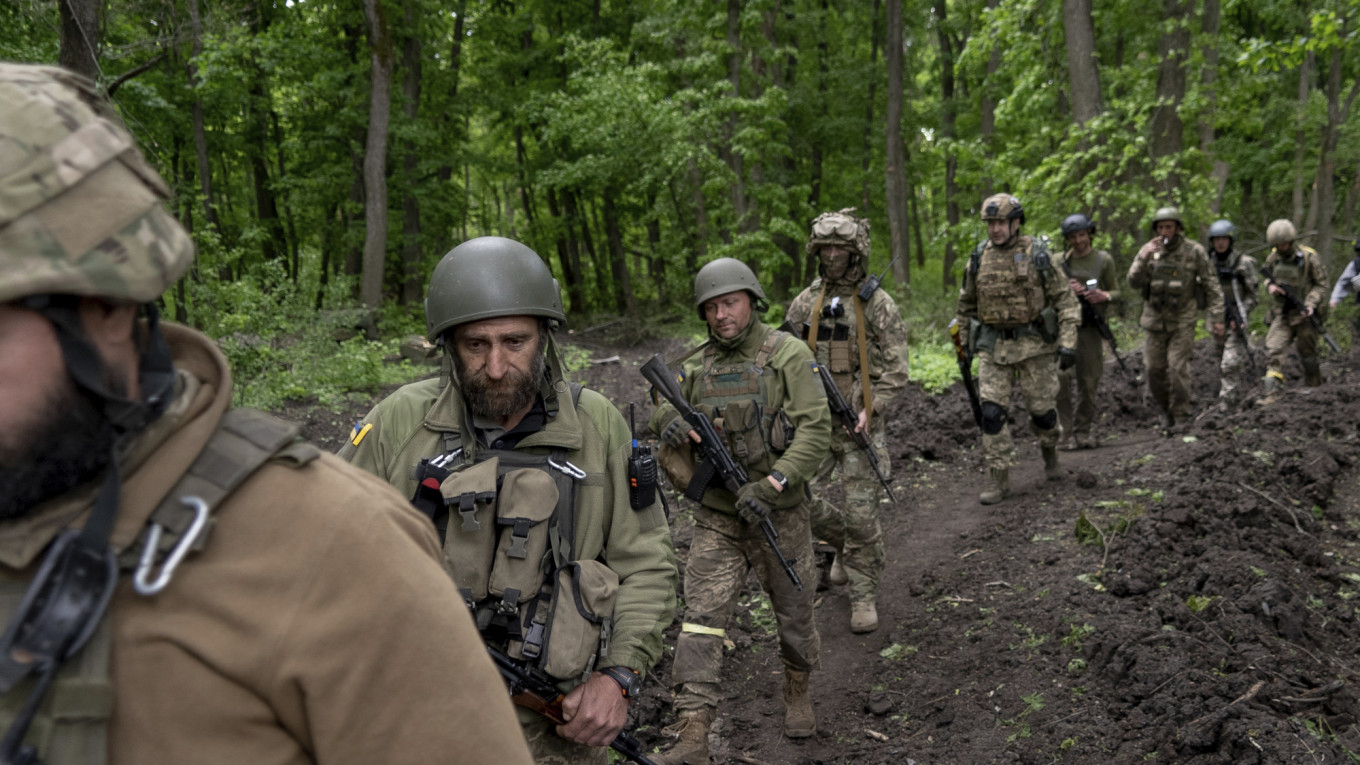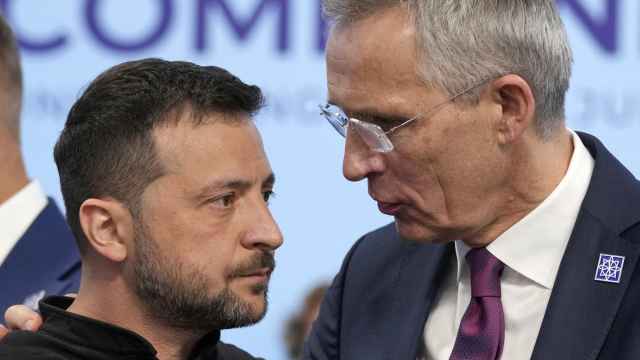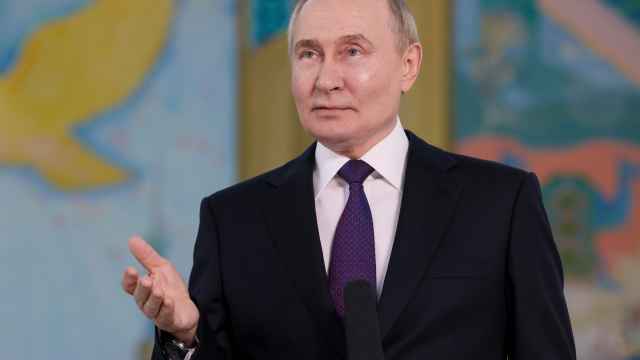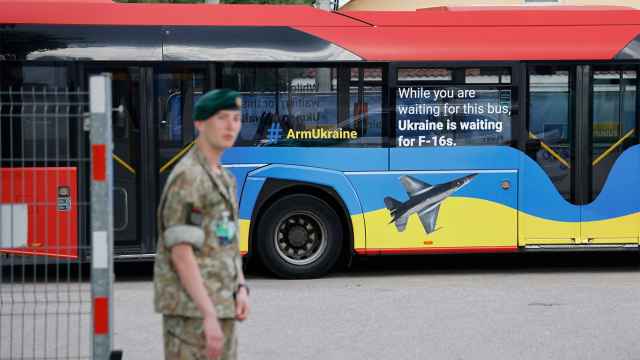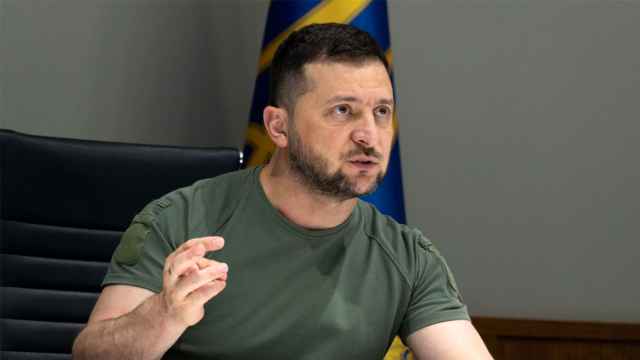Ukrainian authorities said a rescue mission to extract the last defenders of the Azovstal steelworks in Mariupol was under way on Tuesday, after hundreds of soldiers were evacuated in an earlier operation.
The factory complex had become a symbol of resistance, with around 600 soldiers holed up in underground tunnels and bunkers fighting a rear-guard battle to prevent Russian troops taking full control of the strategically located port city.
On Monday more than 260 fighters were evacuated through humanitarian corridors to areas under Russian and Moscow-backed separatists' control, with Ukraine's defense ministry saying a further "exchange procedure" would take place later.
"As for the defenders who still remain on the territory of Azovstal, all necessary rescue measures are being taken by our state," the ministry said in a Telegram message.
"Thanks to the defenders of Mariupol, Ukraine received vital time to accumulate reserves, regroup and mobilize forces and receive assistance from allies," it added.
The Ukrainian army said in a Facebook statement that holding the steelworks had delayed the transfer of 20,000 Russian troops to other parts of Ukraine, and stopped Moscow from quickly capturing the southern city of Zaporizhzhia.
Despite the resources of its giant neighbor, Ukraine has managed to repel the Russian army for longer than many expected, fortified by weapons and cash from Western allies.
The latest example of this came Monday, when Ukraine's defence ministry announced its troops had regained control of territory on the Russian border near the country's second-largest city of Kharkiv.
The area has been under constant attack, and Kyiv's gains have come at a high cost, with villages gutted and destroyed by bombs.
Trembling, Rostislav Stepanenko struggled to light a cigarette as he recounted to AFP how he survived shelling in his village, caught in the firing line between Russian and Ukrainian forces just north of Kharkiv.
He had gone back to collect some belongings but returned empty-handed and stunned by the incessant artillery fire.
The 53-year-old joked that his profession was "trying to stay alive."
'Shelling without stopping'
Ukrainian officials say that Russian troops are withdrawing from around Kharkiv and being transferred to Donbas, an eastern area near the Russian border which has become Moscow's new military focus.
"The armed forces of Ukraine are repelling constant attacks in those areas where Russia is still trying to advance," President Volodymyr Zelensky said in his nightly address.
"Severodonetsk and other cities in Donbas remain the main targets for the occupiers."
Taking Severodonetsk, the easternmost city held by Ukraine, would grant the Kremlin de facto control of Lugansk, one of two regions — along with Donetsk — that comprise Donbas.
Lugansk governor Sergiy Gaiday has said Russian troops were striking the city "without stopping," and early Tuesday he said two buildings of the city's general hospital had been hit overnight.
"We have ten dead and three wounded in the region," he wrote on Telegram.
Severodonetsk's mayor has said the city is almost surrounded by Russian troops and pro-Kremlin separatists.
But Russia's attempt to completely encircle it has been repelled with heavy equipment losses, while Russian-occupied railway bridges were blown up, Ukrainian officials said.
Russian shelling continued across the whole country overnight, with air sirens heard throughout Ukraine in the early hours of Tuesday.
In the western city of Lviv, an official from the Regional Military Administration said a military infrastructure facility "almost on the border with Poland" had been hit.
The army's southern operational command said Odessa and Mykolaiv had been struck, and that there had been victims in both cities.
In a Facebook post, it accused Russian forces of using indiscriminate cluster munitions in the center of Mykolaiv.
NATO 'no direct threat'
With Moscow showing no sign of relenting nearly three months into its invasion, Finland and Sweden are poised to give up decades of military non-alignment by joining the NATO military alliance.
Russian President Vladimir Putin said the move poses "no direct threat for us... but the expansion of military infrastructure to these territories will certainly provoke our response."
Putin's reaction was more moderate than comments earlier Monday from Deputy Foreign Minister Sergei Ryabkov, who had called the expansion a "grave mistake with far-reaching consequences."
The move is not a done deal in any case, with Turkish President Recep Tayyip Erdogan on Monday confirming his country's intention to block the applications, accusing Finland and Sweden of harboring terror groups, including outlawed Kurdish militants.
Any membership bid must be unanimously approved by NATO's 30 nations.
But U.S. Secretary of State Antony Blinken voiced confidence Sunday that Sweden and Finland would join NATO despite Turkey's opposition.
Turkish Foreign Minister Mevlut Cavusoglu will meet Blinken in Washington on Wednesday, where Ankara's objections are expected to figure high on the agenda.
'Time is running out'
European Union foreign ministers met Monday to discuss their own attempt to up the pressure on Russia by imposing unprecedented economic sanctions, including a ban on Russian oil.
The proposal has so far been blocked by Hungary over the cost.
"We are unhappy with the fact that the oil embargo is not there," Ukraine's top diplomat Dmytro Kuleba said afterwards.
"It's clear who's holding up the issue. But time is running out because every day Russia keeps making money and investing this money into the war."
The war meanwhile is taking its toll on the continent's growth. The European Commission sharply cut its eurozone forecast for 2022 to 2.7%, blaming skyrocketing energy prices.
Separately, French automaker Renault has handed over its Russian assets to Moscow, while U.S. fast food giant McDonald's announced it would be pulling out, citing the "humanitarian crisis caused by the war."
A Message from The Moscow Times:
Dear readers,
We are facing unprecedented challenges. Russia's Prosecutor General's Office has designated The Moscow Times as an "undesirable" organization, criminalizing our work and putting our staff at risk of prosecution. This follows our earlier unjust labeling as a "foreign agent."
These actions are direct attempts to silence independent journalism in Russia. The authorities claim our work "discredits the decisions of the Russian leadership." We see things differently: we strive to provide accurate, unbiased reporting on Russia.
We, the journalists of The Moscow Times, refuse to be silenced. But to continue our work, we need your help.
Your support, no matter how small, makes a world of difference. If you can, please support us monthly starting from just $2. It's quick to set up, and every contribution makes a significant impact.
By supporting The Moscow Times, you're defending open, independent journalism in the face of repression. Thank you for standing with us.
Remind me later.


